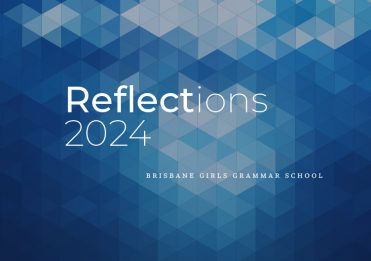“In the early 21st century, the internet—and the social internet, in particular—has enabled a more connected world. But it’s also enabled and amplified some of humanity’s worst behaviors. Fringy, toxic opinions and outright disinformation proliferate. Antisocial behavior is normalized. Facts—when they can be recognized—are used to bolster preexisting opinions, not to challenge assumptions.” Mark Sullivan, award-winning technology journalist
When a tool designed to connect the world evolves into a way to incite anger and amplify division, to isolate rather than unite, to reinforce our biases rather than expose us to new ideas and perspectives, how do we teach our children to engage with the Internet critically—to use it responsibly, for good, and in a balanced way?
We are no doubt familiar with how digital platforms obtain and keep our attention, about sophisticated algorithms that learn who we are—what we like, what we don’t, where we live, what we do—then share content that reinforces our existing opinions, content they know we will engage with. A recent Harvard University study showed that social media lights the same area of our brain that is affected by addictive substances; dopamine levels rise, causing our brain to associate the activity with positive reinforcement. Screens, scrolling, liking, notifications—we are addicted. Studies of adolescent use of social media indicate a correlation between this addiction and poorer mental health outcomes; educators have long known this, and grappled with teaching students to develop a healthy relationship with these platforms.
We all know too much time on a screen is detrimental—regardless of our age—yet the grasp of the Internet extends beyond the social and into the functional aspects of our lives, further deepening our reliance on digital devices. New York Times journalist, Tressie McMillan Cottom, writes, ‘If you are younger than 45, the internet has been the most powerful institution in your life, hands down. It is more powerful than the government, more intimately experienced than voting, more tangible than a house or a car or a job. You cannot touch the internet but you can feel it. That’s where everything happens, from finding a job to building a social life.’
Even for those of us older than 45, could we function without the Internet? Tom Wheeler, Former Chairman of the US Communications Commission (who is well over 45) argues that rather than a ‘nice to have’, the Internet is critical to our lives. This criticality was heightened during the pandemic—we used the Internet to learn of the latest COVID developments, connect to those we couldn’t see in person, and perhaps quell our boredom during extended periods indoors. For all that we have gained, what have we lost from this digital reliance? Many of us may find it difficult to remember the last time we entered a bank. Perhaps we order our groceries online and avoid supermarkets. A trip to the cinema may be a distant memory, replaced by Netflix’s never-ending library.
While no doubt the Internet’s many conveniences save us time, simultaneously what we miss are valuable opportunities for social interaction, engagement with the world around us, incidental conversations, even waiting in a queue! What do these opportunities have in common? They expose us to new ideas, people and places. They expand our understanding, perspectives, and thoughts—rather than digital systems that seek to reinforce our existing beliefs. Importantly, they also allow us to connect with one another in ways that doing so online simply cannot. We know for example, that within our student population, what they miss most during remote learning is seeing friends, teachers, being physically amongst their community, being together.
As educators, we have a responsibility to teach our students how to think critically about their online engagement, to be discerning in the content they engage with, to use their voices for positive change, and most importantly, to understand that while the Internet may be critical to our lives, it does not define who we are. I know teachers in classrooms (and homes) around the world take this responsibility seriously, perhaps even feel burdened by its magnitude, for we know the cost of these opportunities lost, the importance of protecting the ‘freedom’ of childhood.
We all—as individuals, communities, institutions—have a role to play in balancing our engagement with the digital world, and in ensuring it does not come at the expense of our engagement with the real world.




